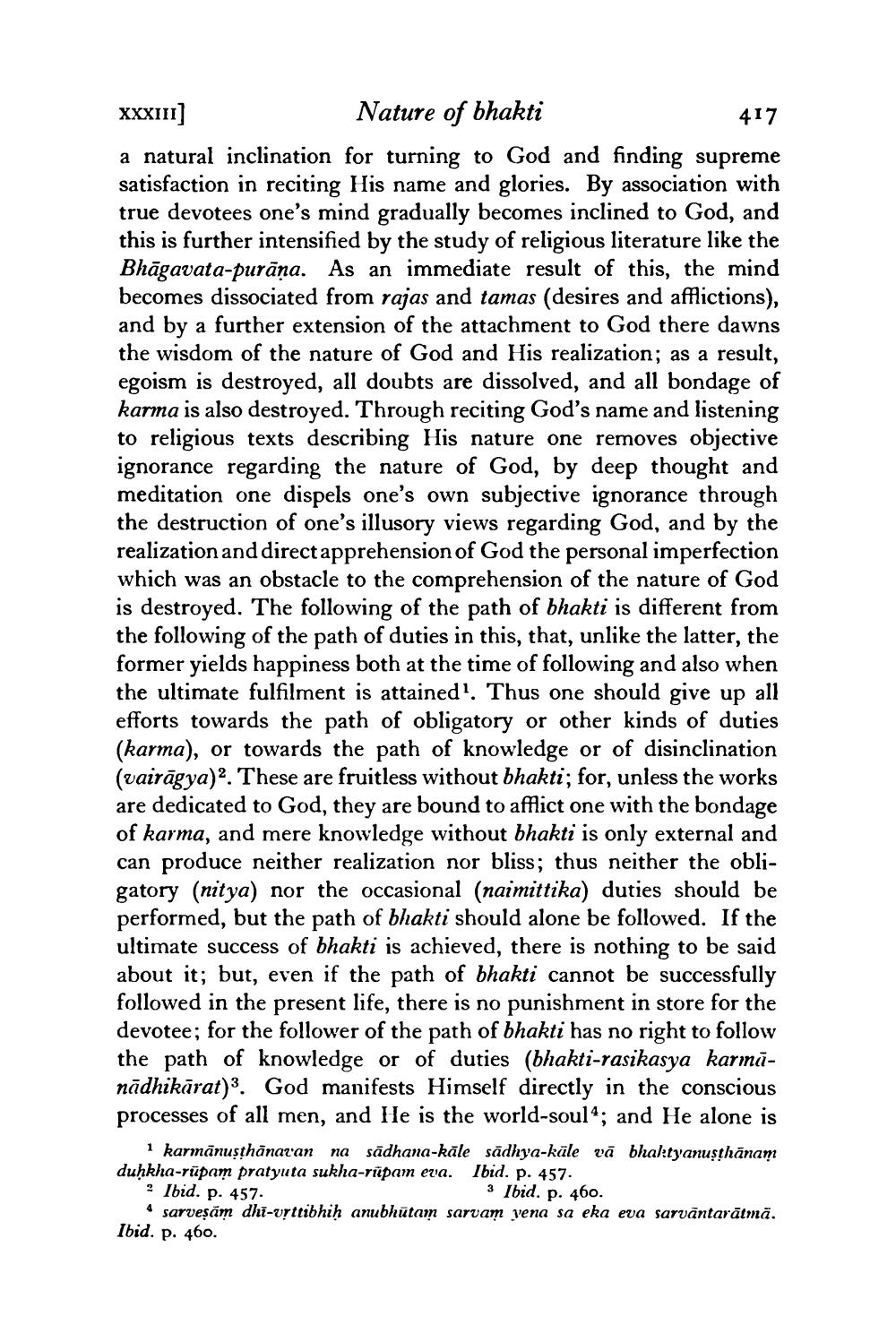________________
XXXII] Nature of bhakti
417 a natural inclination for turning to God and finding supreme satisfaction in reciting His name and glories. By association with true devotees one's mind gradually becomes inclined to God, and this is further intensified by the study of religious literature like the Bhāgavata-purāna. As an immediate result of this, the mind becomes dissociated from rajas and tamas (desires and afflictions), and by a further extension of the attachment to God there dawns the wisdom of the nature of God and His realization; as a result, egoism is destroyed, all doubts are dissolved, and all bondage of karma is also destroyed. Through reciting God's name and listening to religious texts describing His nature one removes objective ignorance regarding the nature of God, by deep thought and meditation one dispels one's own subjective ignorance through the destruction of one's illusory views regarding God, and by the realization and direct apprehension of God the personal imperfection which was an obstacle to the comprehension of the nature of God is destroyed. The following of the path of bhakti is different from the following of the path of duties in this, that, unlike the latter, the former yields happiness both at the time of following and also when the ultimate fulfilment is attained'. Thus one should give up all efforts towards the path of obligatory or other kinds of duties (karma), or towards the path of knowledge or of disinclination (vairāgya)2. These are fruitless without bhakti; for, unless the works are dedicated to God, they are bound to afflict one with the bondage of karma, and mere knowledge without bhakti is only external and can produce neither realization nor bliss; thus neither the obligatory (nitya) nor the occasional (naimittika) duties should be performed, but the path of bhakti should alone be followed. If the ultimate success of bhakti is achieved, there is nothing to be said about it; but, even if the path of bhakti cannot be successfully followed in the present life, there is no punishment in store for the devotee; for the follower of the path of bhakti has no right to follow the path of knowledge or of duties (bhakti-rasikasya karmānādhikarat). God manifests Himself directly in the conscious processes of all men, and He is the world-soul4; and He alone is
i karmānusthānaran na sādhana-kāle sādhya-kāle vā bhaktyanusthānam duḥkha-rüpam pratyuta sukha-rüpam eva. Ibid. p. 457. ? Ibid. p. 457
3 Ibid. p. 460. sarveșām dhi-vrttibhih anubhūtam sarvam vena sa eka eva sarväntarātmā. Ibid. p. 460.




